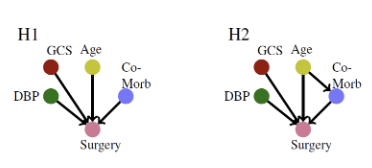Pottie Group Interactive Systems Research
Our research focuses on systems in which human interactions are a major component. Examples of interactive systems include education, games, fitness monitors, self-driving cars, interfaces to consumer electronics, and internet of things applications.
*As of June 2024, Professor Pottie is officially retired.*


A Brief Bio of Professor Gregory Pottie
Gregory J. Pottie was born in Wilmington DE and raised in Ottawa, Canada. He received his B.Sc. in Engineering Physics from Queen’s University, Kingston, Ontario in 1984, and his M.Eng. and Ph.D. in Electrical Engineering from McMaster University, Hamilton, Ontario, in 1985 and 1988 respectively. From 1989 to 1991 he worked in the transmission research department of Motorola/Codex in Canton MA, with projects related to voice band modems and digital subscriber lines. Since 1991 he has been a faculty member of the UCLA Electrical and Computer Engineering Department, serving in vice-chair roles from 1999-2003 and as Chair 2015-2020. From 2003-2009 and 2022-23 he was the Associate Dean for Research and Physical Resources of the Henry Samueli School of Engineering and Applied Science, and from 2002-2012 he was deputy director of the NSF funded Center for Embedded Networked Sensing. His research interests include wireless communication systems, sensor networks and interactive educational systems. His current focus is on causal modeling for machine learning systems applied to these domains. From 1997 to 1999 he was secretary to the board of governors for the IEEE Information Theory Society. In 1998 he received the Allied Signal Award for outstanding faculty research for UCLA engineering. In 2005 he became a Fellow of the IEEE for contributions to the modeling and applications of sensor networks. In 2009 he received a Fulbright Senior Scholar award. He is a Senior Member of the National Academy of Inventors. Dr. Pottie is a member of the Bruin Master’s Swim Club (butterfly) and the St. Mathew’s Choir (2nd bass).
Highlights

Our Research
Our lab focuses on systems in which human interactions are a major components, increasingly modeling systems using simulations and generative models. Interactive systems such as Intelligent Tutoring Systems, Games, imaging systems, internet of things devices, and personalized medicine, offer a unique set of challenges. Recently, our lab pulls from the latest research in deep learning and generative models to address some of these challenges, while pushing for an increased harmony between structured, causally informed models and classical deep learning techniques.

Our Resources
Our resources page includes various links to important external resources for our lab, white papers by Professor Pottie, and extensive educational resources for undergraduate mentoring.

